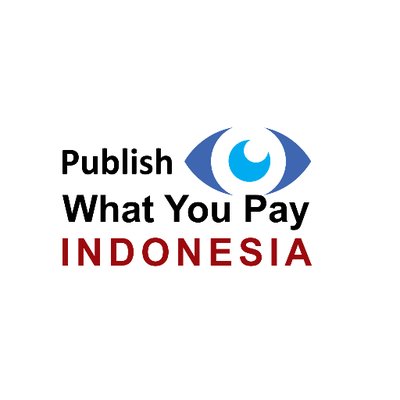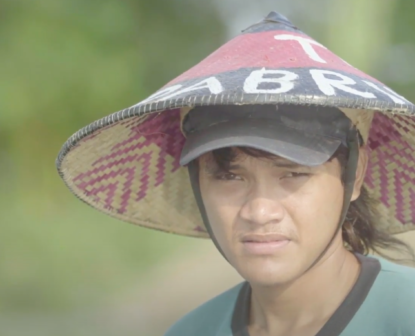Project
Resourcing Sedulur Sikep communities
-
Amount Funded
148,682 EUROProject Duration
01 Aug 2018 - 31 Jul 2020 -
-
Lead organisation
-
Founded in 2007, Publish What You Pay (PWYP) Indonesia is part of global movement that promotes transparency and accountability of extractive sectors such as oil, gas, mining and forestry. PWYP Indonesia is dedicated to promoting good governance in the extractive sector through collaborative approaches and evidence based solution. PWYP does this by building awareness and capacity of stakeholders, facilitating collaboration through multi-stakeholder partnerships, and creating a network of coalitions with other organisations working on cross-cutting issues (for example anti-corruption, indigenous group, public budgeting, women and children, etc.). With such vision, in 2009 for example PWYP facilitated development of a transparency mechanism accommodating all stakeholders in the extractive industry, endorsed by the Indonesian government. PWYP capitalises on the successful work at national level, by implementing innovative approaches at sub-national level to promote accountability of the sector. For instance, in 2014 PWYP trained and assisted on the use of drone and open data to indigenous groups in West Kalimantan to help them holding the government and mining industry to account as well as advocate for recognition of the customary forest. The multi-stakeholder approach proved the highlight of PWYP’s work in supporting the Anti-Corruption Commission. Since 2014 they have been working on closing the loophole along the entire value chain in the mining sector in all provinces in Indonesia. PWYP engages and assists local government to curb the problematic mining permit system. They also create and coordinate civil society organisation’s findings resulting from the monitoring of the mining industry. This effort has increased national revenue and revoked hundreds of problematic mining permits, also created better governance in the sector. PWYP centres their programmes on people and their coalition members and target groups. They develop and open their project (and budget) with the coalition members and target group. PWYP promotes multi-stakeholder-led programming, where every voice is heard, concern addressed, and contribution valued. They make sure that coalition members and target groups are aware that they do not have every answer, but partnership might have it. Each project is co-lead with the coalition members and target group. Some are even co-funded by the coalition members and target group at least in-kind. They ensure that every programme optimally empowers the coalition members and target group to become development expert for their own group and region.
-
Organisation
Founded in 2007, Publish What You Pay (PWYP) Indonesia is part of global movement that promotes transparency and accountability of extractive sectors such as oil, gas, mining and forestry. PWYP Indonesia is dedicated to promoting good governance in the extractive sector through collaborative approaches and evidence based solution. PWYP does this by building awareness and capacity of stakeholders, facilitating collaboration through multi-stakeholder partnerships, and creating a network of coalitions with other organisations working on cross-cutting issues (for example anti-corruption, indigenous group, public budgeting, women and children, etc.). With such vision, in 2009 for example PWYP facilitated development of a transparency mechanism accommodating all stakeholders in the extractive industry, endorsed by the Indonesian government. PWYP capitalises on the successful work at national level, by implementing innovative approaches at sub-national level to promote accountability of the sector. For instance, in 2014 PWYP trained and assisted on the use of drone and open data to indigenous groups in West Kalimantan to help them holding the government and mining industry to account as well as advocate for recognition of the customary forest. The multi-stakeholder approach proved the highlight of PWYP’s work in supporting the Anti-Corruption Commission. Since 2014 they have been working on closing the loophole along the entire value chain in the mining sector in all provinces in Indonesia. PWYP engages and assists local government to curb the problematic mining permit system. They also create and coordinate civil society organisation’s findings resulting from the monitoring of the mining industry. This effort has increased national revenue and revoked hundreds of problematic mining permits, also created better governance in the sector. PWYP centres their programmes on people and their coalition members and target groups. They develop and open their project (and budget) with the coalition members and target group. PWYP promotes multi-stakeholder-led programming, where every voice is heard, concern addressed, and contribution valued. They make sure that coalition members and target groups are aware that they do not have every answer, but partnership might have it. Each project is co-lead with the coalition members and target group. Some are even co-funded by the coalition members and target group at least in-kind. They ensure that every programme optimally empowers the coalition members and target group to become development expert for their own group and region.
-
Project
The project Resource Rights for Sedulur Sikep aims to increase awareness of the rights of indigenous people of Sedulur Sikep over access to productive resources including land, water and other natural resources. The overall aim is to raise awareness about the conversation of the North Kendeng Mountains as a source of the community’s livelihood through policy advocacy. This approach is particularly important, given that influencing the policy agenda will contribute in laying the foundation of community engagement for years to come. Also, considering that the expansion of mining and cement industries today is regulated as part of numerous policies, particularly at the provincial level. For instance, the spatial plans policy and also regional mid-term development plan which prioritises the mining industry. This project emphasises a collaborative approach, involving indigenous people and in particular women to monitor the local policy-making process which may threaten the mountains’ sustainability. Community participation is facilitated by the establishment of a Multi Stakeholder Fora (MSF), consisting of central and local government, the community, academics, civil society and other stakeholders. In parallel, PWYP Indonesia also facilitates strengthening capacities of indigenous communities in policy engagement through the MSF and campaigns on preserving the nature and sustainability of the mountains by using inclusive technology and/or local wisdom upheld by the indigenous communities. By doing so, the project is expected to facilitate the development and implementation of policies which support the conservation of the mountains through local wisdom and sustainable development principles. Besides, it also contributes to empower indigenous women in voicing their causes to conserve the mountains using a more comprehensive policy advocacy approach.
-
-
The project Resource Rights for Sedulur Sikep aims to increase awareness of the rights of indigenous people of Sedulur Sikep over access to productive resources including land, water and other natural resources. The overall aim is to raise awareness about the conversation of the North Kendeng Mountains as a source of the community’s livelihood through policy advocacy. This approach is particularly important, given that influencing the policy agenda will contribute in laying the foundation of community engagement for years to come. Also, considering that the expansion of mining and cement industries today is regulated as part of numerous policies, particularly at the provincial level. For instance, the spatial plans policy and also regional mid-term development plan which prioritises the mining industry. This project emphasises a collaborative approach, involving indigenous people and in particular women to monitor the local policy-making process which may threaten the mountains’ sustainability. Community participation is facilitated by the establishment of a Multi Stakeholder Fora (MSF), consisting of central and local government, the community, academics, civil society and other stakeholders. In parallel, PWYP Indonesia also facilitates strengthening capacities of indigenous communities in policy engagement through the MSF and campaigns on preserving the nature and sustainability of the mountains by using inclusive technology and/or local wisdom upheld by the indigenous communities. By doing so, the project is expected to facilitate the development and implementation of policies which support the conservation of the mountains through local wisdom and sustainable development principles. Besides, it also contributes to empower indigenous women in voicing their causes to conserve the mountains using a more comprehensive policy advocacy approach.
-
Publish What You Pay (PWYP) Indonesia is part of a global movement and coalition that promotes transparency and accountability in the extractive sectors such as oil, gas, mining and forestry. PWYP Indonesia is dedicated to promoting good governance in the extractive sector through collaborative approach and evidence-based solutions. It does this by building awareness and capacity of stakeholders, facilitating collaboration through multi-stakeholder partnership, and creating a network of coalitions with other organisations who work on issues that cross-cut with the extractive sector, for example anti-corruption, indigenous rights, public budgeting, women and children’s rights, etc.
PWYP implemented the project Resourcing Sedulur Sikep Communities with the aim of increasing awareness of the rights of indigenous people of Sedulur Sikep over access to productive resources including land, water and other natural resources and to raise awareness about the conversation of the North Kendeng Mountains as a source of the community’s livelihood through policy advocacy.
It was designed to ensure the fulfilment of the rights of indigenous people of Sedulur Sikep over access to productive resources which included land, water and other natural resources by preserving the North Kendeng Mountains as the source of the community’s livelihood. The project offered an alternative approach to addressing the problem by emphasizing the use of policy advocacy. This approach was particularly important, given that influencing the policy agenda would contribute to setting the foundation of community advocacy for a long term, as well as considering that the expansion of mining and cement industries is nowadays legalized under numerous policies, particularly at the provincial level.
The project used collaborative methods to achieve the objective. It involved the indigenous peoples particularly women, to monitor the local policy making process which potentially threatened the sustainability of the Mountains. The community participation was facilitated by the establishment of Multi Stakeholder Forum (MSF), which consisted of central and local government, the community, academics, civil society and other stakeholders. PWYP Indonesia also facilitated the capacity building for the indigenous people on policy advocacy by utilizing MSF and campaigns on preserving the nature and sustainability of the Mountains by using inclusive technology or local wisdom upheld by the indigenous people.
“Voice have been enabling us to explore and use some of new approaches as part of the advocacy process, especially in keeping and maintaining the cultural approach as part of advocacy strategy and community organizing” – Aryanto Nugroho, Coordinator PWYP
At the provincial level, there were two significant achievements regarding the policy change. The Regional Mid-Term Development Plans (RPJMD) 2018-2023 policy put in place a program to protect groundwater basin (Cekuangan Air Tanah/CAT) Watuputih and other groundwater basin areas. A series of critical notes/inputs were related to the Regional Spatial Plans-RTRW (Rencana Tata Ruang dan Wilayah) Revision of Central Java Province 2009-2029. Some critical issues are related to the changing of priority area for mining where Rembang was excluded from the priority area of mining sector, the point of recognition to the Indigenous peoples, and the indicator related to SDGs that applied in this policy that is enforced by the Ministry of National Development Plans (Bappenas).
At the national level, there is a utilization or contextualization of Strategic Environmental Assessment (KLHS) as the basic policy document for advocacy that is almost used in the process of Kendeng advocacy and campaign. Through KLHS-I and KLHS-II, a number of important recommendations such as the establishment of CAT Watuputih and its surroundings as protected areas and the determination of the Karst Landscape Area have been accommodated through the revision of RTRW and RPJMD of Central Java to make sure that the environmental carrying capacity has not been exceeded.
- News




